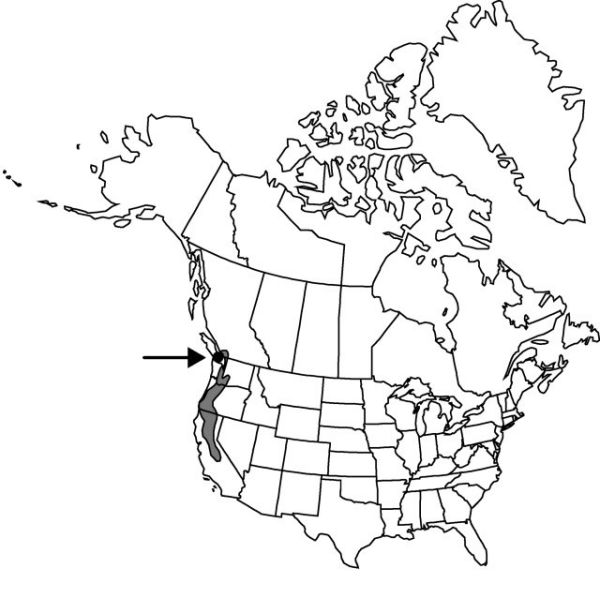Difference between revisions of "Brodiaea coronaria subsp. coronaria"
Endemic
Basionym: Brodiaea howellii Eastwood 1938
Synonyms: Brodiaea grandiflora Smith Brodiaea synandra (A. Heller) Jepson
imported>Volume Importer |
imported>Volume Importer |
||
| Line 60: | Line 60: | ||
|publication year= | |publication year= | ||
|special status=Endemic | |special status=Endemic | ||
| − | |source xml=https:// | + | |source xml=https://bitbucket.org/aafc-mbb/fna-data-curation/src/2e0870ddd59836b60bcf96646a41e87ea5a5943a/coarse_grained_fna_xml/V26/V26_647.xml |
|genus=Brodiaea | |genus=Brodiaea | ||
|species=Brodiaea coronaria | |species=Brodiaea coronaria | ||
Latest revision as of 21:16, 5 November 2020
Corm coat heavily fibrous. Scape 5–25 cm. Flowers: perianth bluish violet or bluish purple, tube 6–13 cm, lobes 15–25 mm; anther apex hooked; staminodia white; ovary 8–9 mm; style 9–11 mm. 2n = 12, 24, 42.
Phenology: Flowering spring (Apr–Jun).
Habitat: Grasslands, volcanic mesas
Elevation: 0–1600 m
Distribution

B.C., Calif., Oreg., Wash.
Discussion
Subspecies coronaria, like Brodiaea elegans subsp. elegans, is very widespread and grows well in a variety of conditions. It is found primarily in the grasslands of California valleys and in the prairies of western Oregon and Washington. The 2n = 12 populations are found in the northern (Oregon and Washington) and southern (central California) parts of the range, while the 2n = 24 populations are found in the middle part of the range (northern California and southern Oregon).
Selected References
None.
Lower Taxa
None.